While sorting out my bookmarks and transferring the remaining ones from IE to Firefox (those bookmarks which were named in Korean script did not transfer automatically from IE to Firefox like others), I happened to open the Gwanak-gu homepage after a long time. Not that I expected Gwanak-gu (one of the 25 gus (區) or wards of Seoul) to present a visual image of itself with narrow irregular alleys between red-brick small chut'aek housing, but the five images that the Micromedia flash rotates in the homepage really are something else than the Gwanak-gu that I know. Let's not be cynical anyway, it is a picture that the ward wants to show, a developing area with high technology, high apartment buildings and high education. It's up to someone else to trod the paths behind the shining steel and glass and feel the nostalgy and "human stench". (Earlier posts about artistic depictions of Sillim-dong in Gwanak-gu: alleys and red brick houses)
These are the five images of modern Gwanak-gu (a larger picture opens in a new window by clicking):
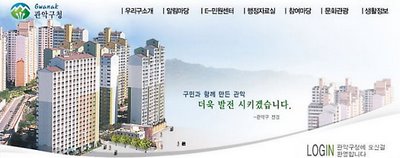
Developing Gwanak-gu with citizens even further - Gwanak panorama
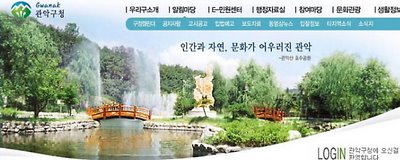
Human, nature, and culture together - Lake park in Gwanak mountain
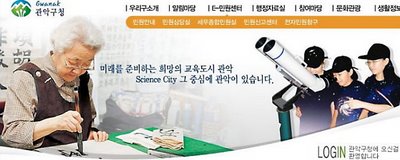
City of education preparing for the future
Gwanak in the heart of Science City
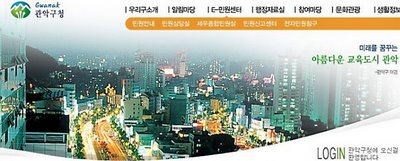
Beautiful city of education, dreaming of the future - night view of Gwanak-gu
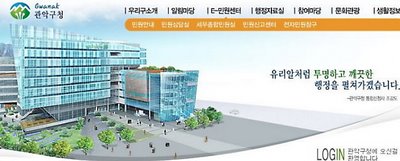
Showing cransparent and clean administration
- view of the new Gwanak-gu Ward Office
I had to go to check the ward statistics at the Gwanak-gu homepage to see the latest housing statistics. The proportion of apartment housing has grown remarkably since the 1990s, but still only 1/4 of residences is in apartments, which is a smaller figure than in Seoul and in the whole Korea. (These are of course residences, and office buildings make some difference to the overall image of the area.
house- 보급 detached semi- 다세대 다가구
holds total 율(%)houses apt. detached 주택(*)주택(**)
1997│144,063│83,405│57.9│44,811│14,072│10,711│13,811│ -
1998│144,744│84,886│58.6│44,768│15,241│10,989│13,888│ -
1999│144,817│85,854│59.3│44,668│16,276│10,937│13,973│ -
2000│151,087│96,250│63.7│37,969│25,990│10,923│15,020│6,338
2001│152,222│96,963│64.1│37,430│24,972│10,551│17,646│6,364
2002│134,031│99,317│74.1│36,336│25,314│10,159│21,174│6,334
For the explanation of the above terms and for the refreshment of my own memory:
(*) Tasedae chut'aek, apartment unit in a private house: a dwelling under 200 p'yông (660 sqm) which was built to house several households, and in which the housing units are separately owned, bought, and sold.
(**)Tagagu chut'aek (Multiple dwellings): A dwelling which has been constructed in order to house several families. Each housing unit has its own entrance, living space, kitchen and bathroom facilities, but the housing units cannot be owned, or bought and sold separately.
Detached house (dwelling) (tandok chut'aek). In principle, a dwelling which has been constructed to house one family (kagu). "Multiple dwellings" (tagagu chut'aek) is also included.
Semi-detached dwelling (yôllip chut'aek) (this is my own wording, since there was no English given in the original document.) A dwelling of 4 or less stories, which has been defined as a yôllip chut'aek in the building permit. (Now is this a circular definition or what?) Two-four-story "villas" and "mansions" are also included.
(These are from yet another post of mine; the terminology document from the link to National Statistics Office in that post has disappeared.)
Categories at del.icio.us/hunjang: Sillim/Gwanak ∙ modernization ∙ urbanspace ∙ Seoul ∙ housing |
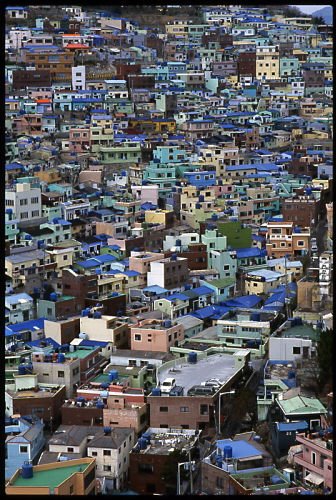 The small housing neighborhoods visible from the train when arriving in Busan make a marked contrast with those in Seoul: not the almost uniform red brick covering of houses but a wide variety of colors in a neighborhood that is not "hill neighborhood" despite of being on a hillside but far from being a middle-class (or in Korean terms "neighborhood living well" chal salda) either.
The small housing neighborhoods visible from the train when arriving in Busan make a marked contrast with those in Seoul: not the almost uniform red brick covering of houses but a wide variety of colors in a neighborhood that is not "hill neighborhood" despite of being on a hillside but far from being a middle-class (or in Korean terms "neighborhood living well" chal salda) either.


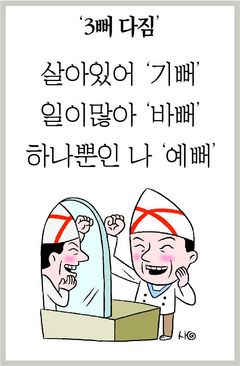 I'm not sure how many street vendors (nojômsang) are able to get encouragement from the case of toast maker Kim Sôk-pong, who is
I'm not sure how many street vendors (nojômsang) are able to get encouragement from the case of toast maker Kim Sôk-pong, who is 

 Jodi at
Jodi at 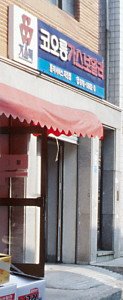 only read of. As she has recently closed the comments from her site, for which she surely has a good reason (exposure in the press?), I use my own pages to reply to
only read of. As she has recently closed the comments from her site, for which she surely has a good reason (exposure in the press?), I use my own pages to reply to 





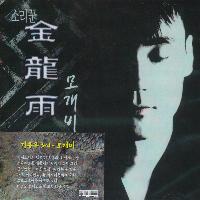
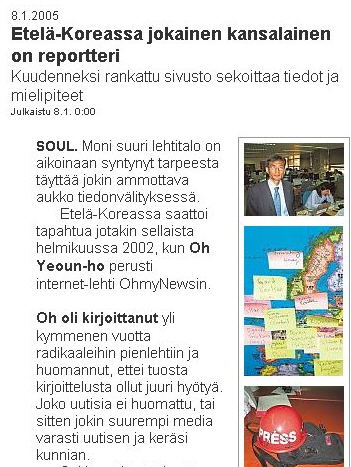
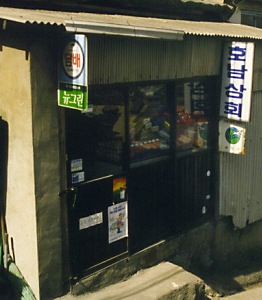


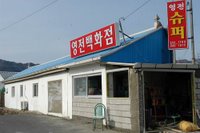

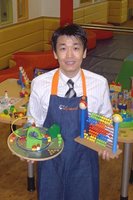
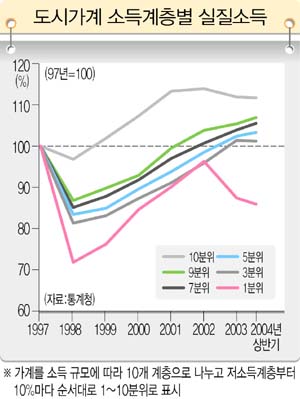 (*)Towerplus is the luxury apartment complex in Gangnam, which has become the symbol of conspicuous wealth in Korea. The "rental room" in the title is jjokpang, room that is rented on a daily basis in dorm-like houses mostly in downtown areas. My understanding is that many renters from the "redeveloped" hillside settlements who haven't been able to acquire other housing have ended up in these places. Here Towerplus and jjokpang are of course used to create an image of a severe bipolarization of society.
(*)Towerplus is the luxury apartment complex in Gangnam, which has become the symbol of conspicuous wealth in Korea. The "rental room" in the title is jjokpang, room that is rented on a daily basis in dorm-like houses mostly in downtown areas. My understanding is that many renters from the "redeveloped" hillside settlements who haven't been able to acquire other housing have ended up in these places. Here Towerplus and jjokpang are of course used to create an image of a severe bipolarization of society.
